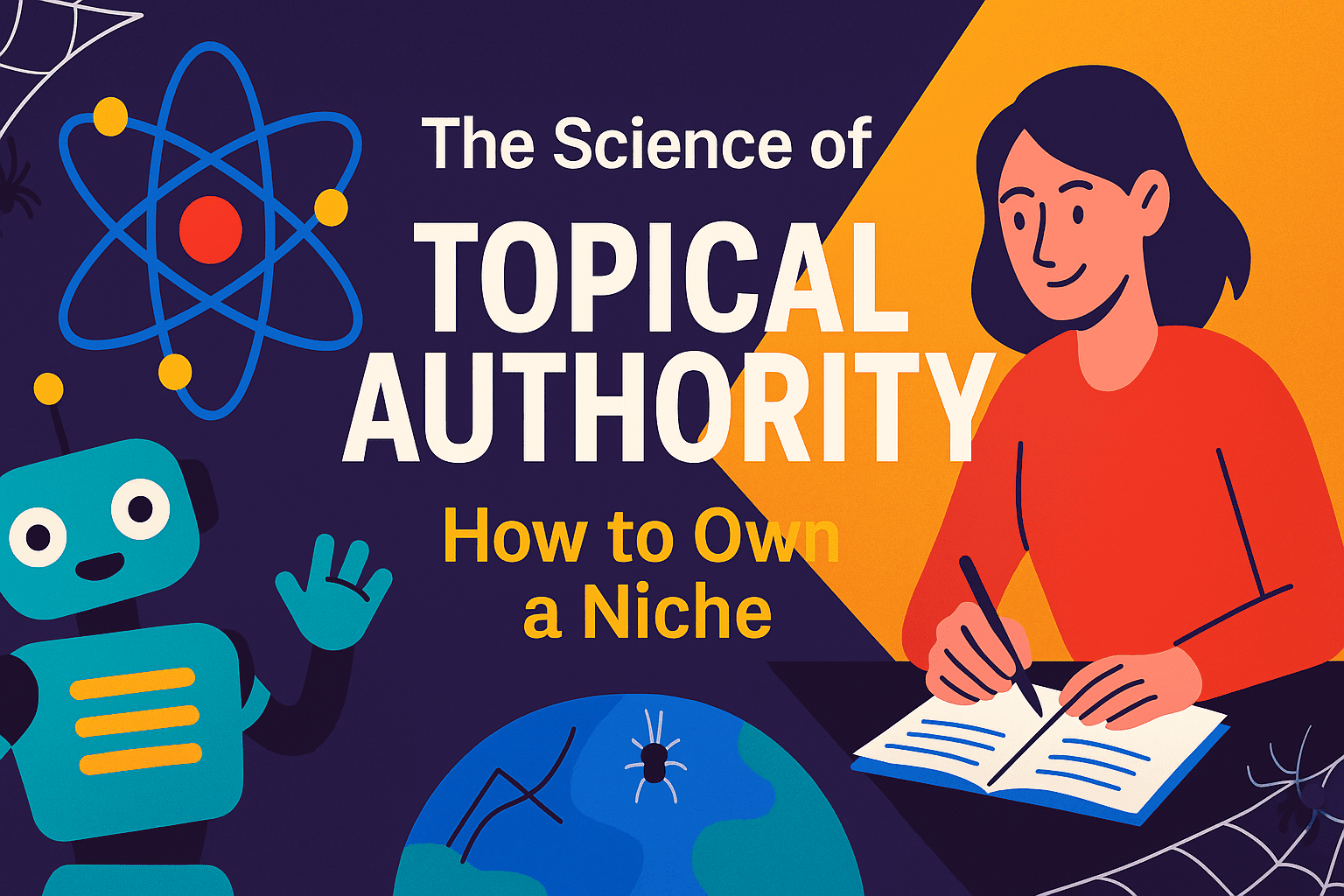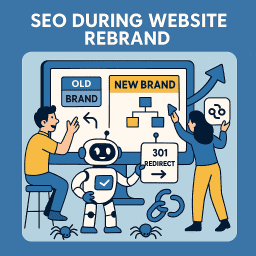Topical Authority SEO Guide: How to Own a Niche in 2025
Mastering semantic SEO, clusters, and entity-based ranking

🎯 Topical Authority: The SEO Superpower You Need
📚 Ever feel like no matter how good your content is, Google just doesn’t see you as the expert?
Welcome to the world of Topical Authority — one of the most important (and misunderstood) concepts in modern SEO.
If you want to rank in 2025, it’s not enough to write a single page targeting a high-volume keyword. Google wants to see proof that you understand the entire subject — not just the buzzwords. That proof comes from your site’s structure, content relationships, semantic relevance, and entity coverage.
This guide breaks down exactly how to build topical authority from the ground up. Whether you’re running a B2B SaaS site, an affiliate blog, or a small business website, mastering this concept will set you apart from 99% of competitors.
🧠 What Is Topical Authority?
Topical Authority means that Google trusts your site to be an expert on a specific subject or niche. It’s based not only on the quality of your content — but the depth, breadth, and interconnectivity of everything you publish.
- ✅ It’s not about publishing “a lot.” It’s about covering a topic completely.
- ✅ It’s not just keywords — it’s concepts, entities, relationships, and structure.
- ✅ It’s not built overnight. It grows as your content ecosystem matures.
When you achieve topical authority, Google gives you the benefit of the doubt — prioritising your pages in rankings and seeing you as a trusted voice in the space.
🔬 The Role of Semantic SEO
Semantic SEO is the foundation of topical authority. Instead of focusing on exact-match keywords, semantic SEO focuses on meaning. It asks:
- 🧩 What does this page mean?
- 🔗 How is it related to other concepts?
- 🧠 What entities, people, places, and actions are involved?
To optimise semantically:
- ✅ Use synonyms and related phrases (e.g. “search engine optimisation” + “ranking strategy” + “Google visibility”)
- ✅ Mention known entities and brands (e.g. Google, Semrush, Moz)
- ✅ Structure your content with clear relationships — not just flat lists of keywords
Tools like InLinks and Surfer SEO help map semantic relationships and improve topic depth.
🧱 Building Topic Clusters
Topic clusters are a critical tool in establishing authority.
A topic cluster =
- 🔹 One pillar page (broad overview of the main subject)
- 🔹 Several cluster pages (targeted deep-dives on subtopics)
- 🔹 Strong internal linking between all related content
Example: A pillar page on “Content Marketing” might link to:
- 📄 “How to Build a Content Calendar”
- 📄 “Best Tools for Content Research”
- 📄 “Measuring Content ROI”
- 📄 “Content Distribution Strategies”
Each cluster page targets unique search intent while reinforcing the authority of the main pillar. Together, they signal that you’re covering the topic in full.
Want to visualise your clusters? Use MindMeister or Miro to map topics and relationships.
📊 Tracking Entity Coverage
Google’s NLP systems (including BERT and MUM) rely heavily on entities — which are recognised “things” like:
- 📍 Locations (e.g. London, Europe)
- 🏢 Organisations (e.g. OpenAI, Meta)
- 👤 People (e.g. Matt Cutts, Rand Fishkin)
- 📚 Topics (e.g. Schema Markup, PageRank)
Your content needs to reference these entities meaningfully — not just as passing mentions. Tools like:
- InLinks Entity Audit
- Text Optimizer
- IBM NLP Demo
…can help you analyse which entities appear in your content and which ones are missing from your topic coverage.
🔍 Identifying Authority Gaps
Even if you’ve published dozens of articles, you may still have gaps.
Here’s how to find them:
- 🧠 List all core topics and subtopics in your niche
- 🔎 Use competitor tools (like Ahrefs’ Content Gap tool) to find what others have that you don’t
- 📌 Map internal links — which subtopics are not supported or linked?
- 📄 Look for “thin content” — pages that touch on topics but don’t go deep
You can’t build trust in Google’s eyes without answering all the relevant questions in your topic space. Use Google’s “People Also Ask” and related searches to find the missing pieces.
🧭 How Google Understands Niches (in 2025)
Google no longer relies on keyword density or basic backlinks. It’s trying to build an internal “map” of who knows what — and how deep that knowledge goes.
Google uses:
- 📚 Knowledge Graphs to understand relationships between topics
- 🤖 Machine Learning to predict authority based on depth, engagement, and topical completeness
- 🔗 Links + mentions from other experts to verify your standing
Winning in SEO today means helping Google make that connection: “This site knows everything about [niche]. Let’s rank them.”
📦 How to Build Topical Authority (Step-by-Step)
- 🎯 Pick one specific niche (not too broad)
- 🧱 Plan a pillar + cluster content model
- 📄 Publish high-quality, internally linked cluster content regularly
- 🔗 Earn relevant links from others in the niche (use Digital PR)
- 📊 Track your entity usage and topic gaps quarterly
- 📈 Monitor keyword growth across the whole niche, not just one page
This is a long game — but once you’re seen as the authority, your site becomes the default answer to everything in your domain.
💬 What the Experts Are Saying
“Don’t chase keywords. Chase the topic. Own the space.” — Aleyda Solis
“Topical authority is earned through depth, not noise.” — Kevin Indig
“Google ranks pages, but it remembers authors and domains.” — Marie Haynes
📝 Recap and Clarify: Post-Specific FAQs
What is topical authority?
Topical authority refers to Google’s perception that your site is a trusted expert on a specific subject. It’s earned by publishing high-quality, semantically rich content across all subtopics of a niche.
Do I need to use pillar pages to build topical authority?
Pillar pages are highly recommended. They serve as the central hub of a topic cluster, giving users and search engines a strong, authoritative overview to build from.
How long does it take to establish topical authority?
It varies, but generally 3–12 months depending on your publishing consistency, content quality, internal linking, and backlink profile. It’s a long-term strategy, not a quick win.
💡 Final Thought
“Topical authority isn’t a trick — it’s the reward for building real expertise and proving it one piece of content at a time.” — David Roche

















